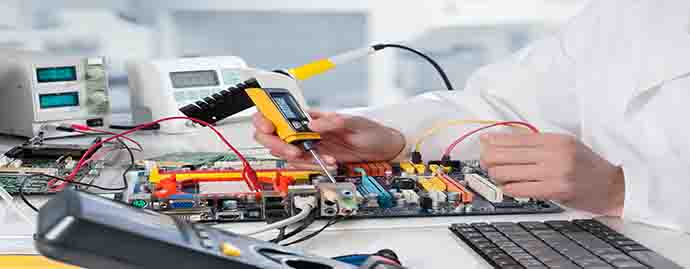| Start Date | End Date | Country | City |
|---|

 +966 920007771
+966 920007771

Objectives
After completing this 5 days course participants will be able to:
- Identify electrical power system components
- Develop and understanding of the fundamental of the lumped circuits
- Understand techniques for solving electric circuits using KVL and KCL
- Learn circuits analysis using mesh, node, superposition and Thevenin and Norton methods
- Learn Capacitors and first-order systems, Digital circuit speed, Second-order system and· Sinusoidal steady state
- Learn The impedance model, Filters, and The operational amplifier abstraction
- Relate AC motors and their applications
- Relate AC motor drives and their applications
- Use analysis and schematics for Troubleshooting in the AC and DC motors
- Use analysis and schematics for Troubleshooting in the motor drives
- Rewinding the DC and AC motors
- Protection of AC low voltage motors
- Protection of AC medium voltage motors
- Protection of AC motor drives
Outlines
DAY 1
- I. Fundamentals of Electricity
- Overview of a typical electric circuits covering electric sources, DC and AC sources, resistance, inductance and capacitors,
- Determination of real (P) and reactive power (Q)
- Determination the methods for solving total resistance at series and parallel circuits.
- Solving the electric circuits using KVL and KCL.
- Control of power factor & system frequency
- Quality of supply
- Superposition, Thévenin and Norton
DAY 2
Capacitors and first-order systems
Inductor and first order systems
Second order system
AC source (Amplitude-frequency and phase angle)
Second-order systems
Sinusoidal steady state
The impedance model
Energy and power
Three phase circuits
Power factor correction
Power conversion circuits
Semiconductor circuits
Rectifier circuits
Inverter circuits
DAY 3
Electrical Motors
- Type of DC motors
- Speed control of DC motors
- Torque and load
- Types of AC motor
- Control operation of AC motors
- AC motor drives
- Speed and Torque
- Low and medium voltage AC motors
- Medium and high power motors
II. Troubleshooting in AC motors Basics
- Troubleshooting in stator winding
- Electrical faults
- Troubleshooting in rotor
- Types and Uses of motor drives
- Troubleshooting of motor drives
DAY 4
Maintenance of AC and DC motors and drives
- Detail
- One-Line Diagram
- Electrical drives
- Motor & Equipment rating
- Wiring Diagrams
- DC motors maintenance
- AC low voltage motors maintenance
- AC medium voltage motors maintenance
- High power motor and drives maintenance
Rewinding of AC and DC motors
- Detail
- One-Line Diagram
- Steps for rewinding of motors
- Rewinding of stator winding
- Rotor rewinding
DAY 5
Protection of AC Medium voltage motors and drives
- Protection of medium voltage motors
- Differential protection
- Ground faults protection
- Over current protection
- Thermal overload protection
- Short circuit protection
- Phase open relay
- Locked rotor protection
- Unbalanced protection
- Protection of low voltage motor drives
- High power low voltage motor and drives protection
Who Should Attend
This course is designed for anyone who needs to understand electrical and schematics for servicing and troubleshooting facility and industrial electrical systems.
- Electrical Technicians
- Maintenance Electrical Technicians
- Apprentices - Alarm Technicians - Electricians - Facility Managers
- Non-Electrical Engineers - Plant & Building Engineers
- Stationary Engineers - Plant & Facility Managers
Duration
5 Days










